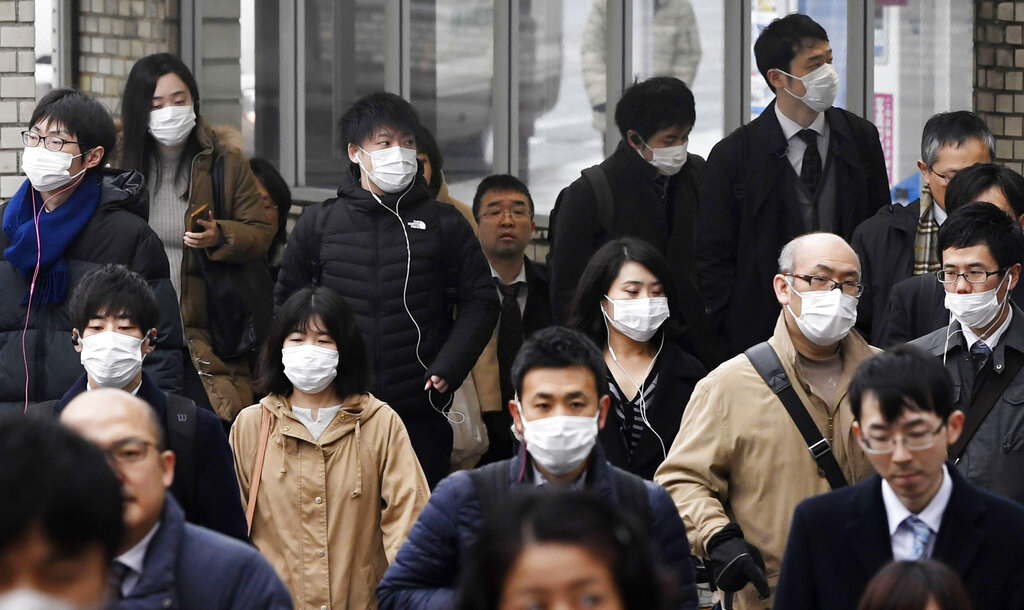TOKYO–Japanese citizens evacuated from Wuhan, the epicenter of a deadly virus outbreak, described an atmosphere of confusion and fear in the Chinese city and expressed relief as they arrived in Tokyo on Wednesday.
A total of 206 Japanese citizens landed at Tokyo’s Haneda airport on Wednesday morning, with health professionals carrying out checks on board and at the airport, but no mandatory quarantine was planned.
Five passengers who said they felt unwell were hospitalized on arrival, but there was no confirmation of whether they were infected with the virus.
The flight arrived as several countries worked to extract their nationals from Wuhan, with an American charter flight also leaving the city on Wednesday, bound for an airport in the Los Angeles area.
Takeo Aoyama, a Nippon Steel employee who arrived on the evacuation flight, described confusion in Wuhan, with travel restrictions intended to contain the virus making it hard for those in the epicenter to know what was happening.
“The number of patients began increasing rapidly at a certain point. That was very worrying,” he told reporters at the airport.
“We were not able to move freely, so we only had partial information. The restrictions on the flow of goods and transport were extremely strict.”
‘Very alarmed’
He said food was available, but supply was uncertain, with shops selling out on some days.
“It wasn’t a situation where we couldn’t get anything at all. But it wasn’t a situation where you could get anything freely, either,” Aoyama said.
Takayuki Kato, who worked in Wuhan for the firm Intec, said the atmosphere inside the city had changed as the scale of the crisis became clear.
“Everyone in the city began wearing masks. On the 23rd, when transport was shut down, I became very alarmed,” he said.
The evacuation had gone smoothly, he added. The flight “was quiet. People were cool-headed”.
The Japan flight arrived in Wuhan overnight, carrying emergency relief supplies including 15,000 masks, 50,000 pairs of gloves and 8,000 protective glasses, the foreign ministry said.
Four medical officials were also on board to monitor returning passengers and administer health questionnaires.
‘Self-quarantine’
All passengers will be tested for the new strain of coronavirus, which has killed more than 130 people and infected thousands.
And while there were no plans to confine the arrivals, the evacuees would be asked to remain at home in “self-quarantine” at least until the results of their tests were known, officials said.
Those with somewhere to stay in and near Tokyo would be taken there by private transport, with others taken to local hotels initially.
Japanese officials say there is no legal basis to forcibly quarantine people who have not tested positive.
The health ministry has so far confirmed seven cases of the virus in Japan, including one man who had not travelled to China.
The man from the western region of Nara had driven a tour bus with tourists from Wuhan twice in January, the health ministry said.
Around 650 Japanese nationals have asked to be repatriated from Wuhan, and Prime Minister Shinzo Abe said Wednesday that Tokyo was working to organize transport for those who remain.
“We will seek every measure for the return of all (Japanese) people who hope to come home from Wuhan,” he said during a parliament session.
The government “will do everything it can to prevent the new coronavirus from spreading”, he added.
Chinese authorities said Wednesday that the number of confirmed deaths in the outbreak has risen to 132 nationwide, with the confirmed total of infections now nearly 6,000.
More than 50 million people have been locked down in and around Wuhan, the central industrial city where the outbreak first began, in a bid by authorities to stop an infection that has since spread to other cities in China and to other countries.
Japan’s All Nippon Airways said Wednesday it would extend the cancellation of its daily direct flight to Wuhan through the end of February.
